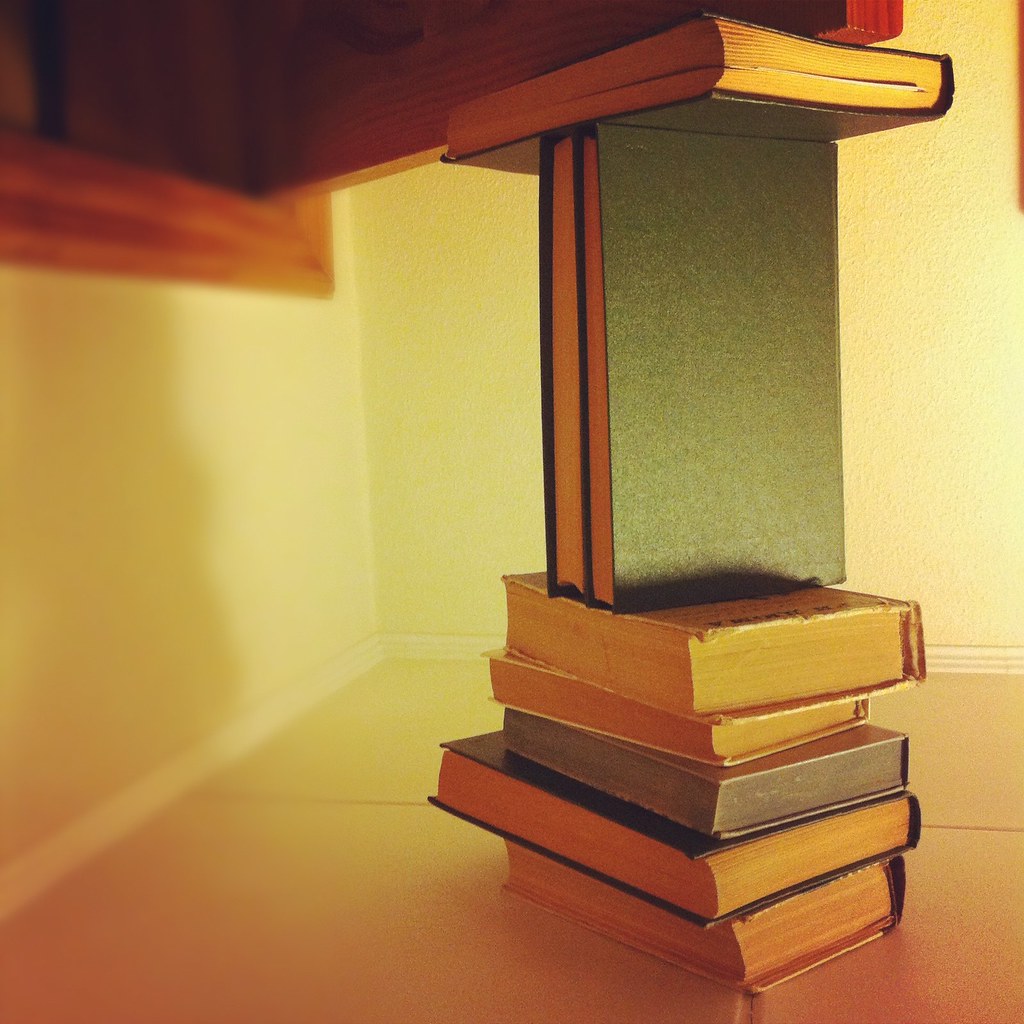Loneliness. Stress. Fatigue. Insecurity. Insomnia. I'm not describing the symptoms of a terrible disease...I'm listing adjectives that describe the life of an indie author. This isn't me trying to make things seem dark and grim. If anything, I'm making it sound good. It's hard, probably harder than I could even describe. That's why you need a support system if you're going to write.
Crazy
Writers, artists and musicians are generally chalked up to being creative types, and therefore somewhat eccentric. Some even seem to cross the line into craziness (Van Gogh, the ear, you know what I'm taking about). But I maintain that it takes at least a small dose of crazy to even want to become a writer. Even the sanest writers, however, can find themselves going a little crazy because it's such a tough task.
It's one of the loneliest jobs and hobbies (because it's different things to different authors). Writing is a solitary task, and no one is ever going to see your book the same way you see your book. It won't mean the same thing, they won't find the same things in it, and most people won't ever really know where it came from, the way you do. In order to write really well, you've got to be alone for hours on end. Speaking to no one. Starting at the screen. Just typing.
In a word, it's tedious. It gets uncomfortable. If you're writing and you're into it and the story is just flowing out of you and you're barely even thinking about it, time begins to really fly by. You may get hungry, or need to go to the restroom, and still you're just typing because you can't break the spell because the moment you do this moment will be lost and the next four thousand words are going to be an epic struggle.
In a word, it's tedious. It gets uncomfortable. If you're writing and you're into it and the story is just flowing out of you and you're barely even thinking about it, time begins to really fly by. You may get hungry, or need to go to the restroom, and still you're just typing because you can't break the spell because the moment you do this moment will be lost and the next four thousand words are going to be an epic struggle.
Writing is both physical and emotional, and don't let anyone tell you different. Your muscles are going to cramp up and stiffen up while you sit there in another world. And as you pour your experiences and emotions into every page, you're going to become exhausted. I had trouble walking after writing a particularly intense death scene in the Novel Which Shall Not Be Named. But I think I did go a bit insane during the writing of that book; I worked 10 hours a day, sometimes, barely eating or sleeping. Some projects, or maybe just one project, will threaten to drive you to the brink. It's happened to plenty of writers in the past.
And all of that, by the way, happens before you publish the book. Publish the book and see if you don't start losing sleep then. You'll agonize over reviews, even when you don't want to, and self-doubt will creep into even the most confident minds. That's the nature of the business. If you put yourself out there and expose your creation to the world, you're going to second-guess and question and double-check and feel nervous and, if you're me, freak out a little (and sometimes more than a little).
So that's why you need a support system. Because no matter how hard you try, you're not going to get through all that stuff all alone.
Your Own Design
Don't anybody go running off; I'm not about to tell you to find Jesus or get yourself a strong mate, or anything like that. It's not necessary that you have a BFF or a bunch of loving family members or even a friendly neighbor.
If you do have that, fine. But if you don't, no need to panic. There are other ways to find support:
- Forums: I'm not the biggest fan of the forums, but they can be helpful. No one understands being an author like another author.
- Escape: I've made no secret of the fact that I play games in my spare time. What I haven't mentioned is that a game helped me get over a nasty bout of writer's block. I once spent a lot of time chatting on a particular platform, and got into story-based roleplay. It got my creativity flowing again, and I wrote the Deck of Lies. Learn how to escape from being an author. Relax. Good things will happen.
- Journal: Keeping a journal sounds like trite advice, bit it works. Try writing an email to yourself, or sit down with a pen and write down your dark thoughts the old-fashioned way. Someone once gave me a notebook with black pages, and a gel pen, to write down my darkest thoughts. It helped! In-between rants and raves, I created a lot of short stories.
- Share: Put your work out there. Share chapters, short stories, poetry, whatever you've got that's extremely well-polished. Publish your stuff online to get feedback from readers. When other people like your work, it will bolster you. Thousands of words become easier to write when you have just one fan.
All writers need a support system. Talk to your family and friends about what you need. Build your own network of support when you need more. Give yourself a strong foundation, and it's much easier to build great writing on top of it.






This comment has been removed by a blog administrator.
ReplyDelete